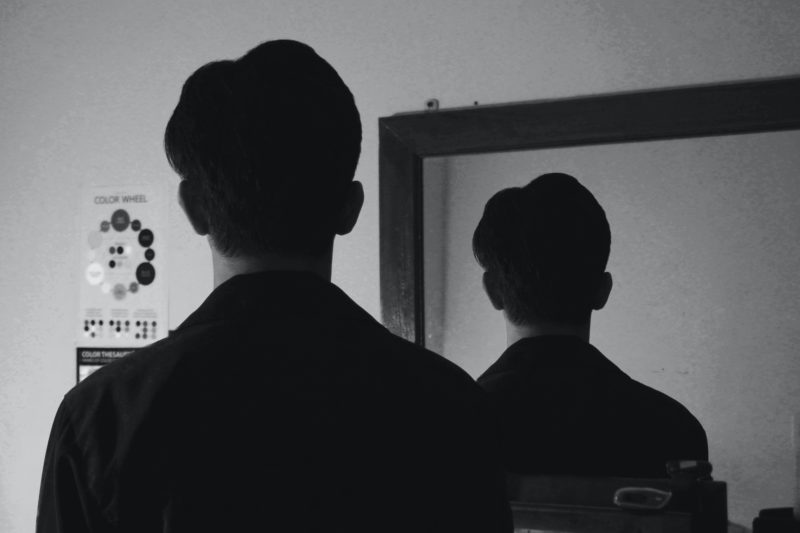The article is developed in partnership with BetterHelp.
In recent years, the general public has realized that taking care of your mental health is equally as essential as caring for your physical health. This article will briefly discuss each of the ten most common personality disorders. Obsessive-compulsive personality disorder (which is different from OCD), narcissistic personality disorder, and borderline personality disorder are the three most common.

Please note that this article is not meant to be used as a tool to diagnose yourself with a disorder. It’s simply meant to provide education on a mental health topic. If you believe you may be living with one of the disorders discussed below, or if you have any other mental health concerns, be sure to reach out to a mental health professional and get the guidance and support you deserve. To learn more about personality disorders, click here.
Antisocial personality disorder, or ASPD, is a disorder that covers two related conditions: sociopathy and psychopathy. People with this disorder often appear charming and charismatic but tend to exploit and manipulate others without feeling remorse for their actions.
Those with ASPD who are considered sociopaths usually disregard social rules but often still form attachments to others. They’re generally more impulsive and easily agitated than those who are considered psychopaths.
People with ASPD and are considered psychopaths are typically cunning and calculated, and they often behave in ways that hurt others without feeling any emotion or empathy.
2. Avoidant Personality Disorder
People living with avoidant personality disorder are usually very sensitive to rejection and criticism and extremely inhibited socially. However, an avoidant personality disorder is more than just being shy; it causes significant issues that make it extremely challenging for people to maintain relationships and interact with others in daily life.
You’ll often see self-isolation, low self-esteem, and avoidance of all types of social activities in people with an avoidant personality disorder.
3. Borderline Personality Disorder
People with a borderline personality disorder or BPD tend to be impulsive, struggle to regulate emotions, and feel everything intensely. They generally think black and white, have an overwhelming fear of abandonment, and engage in dangerous behaviours. People with borderline personality disorder struggle to cope with stress, feel dissociated and empty inside and have trouble maintaining relationships.
4. Dependent Personality Disorder
A dependent personality disorder is a mental health disorder where people spend huge amounts of effort attempting to please others and are emotionally overdependent on others. Those who live with a dependent personality disorder or DPD usually have a fear of separation and display clingy, needy behaviours. They often have difficulty making everyday decisions without getting advice from others. They behave helplessly and passively when faced with adult responsibilities, hoping that a friend or loved one will help them.
Those with DPD usually will not disagree with others because they fear losing their approval and have a very hard time being alone. Unfortunately, their willingness to tolerate mistreatment and even abuse from others means they are susceptible to staying in unhealthy relationships.
5. Histrionic Personality Disorder

People with histrionic personality disorder typically have a distorted self-image and experience intense and unstable emotions. Their self-esteem is entirely dependent on others’ approval. They have an irresistible desire to be noticed by others, which can result in inappropriate and dramatic behaviour.
Those living with HPD usually have very good social skills, but they will often utilize these skills to position themselves as the centre of attention. Whenever they aren’t the centre of attention, they feel uncomfortable. They tend to seek approval constantly and cannot tolerate criticism.
6. Narcissistic Personality Disorder
Narcissistic personality disorder, or NPD, has symptoms including a need for extreme admiration and an overinflated sense of self. However, those with NPD are usually quite sensitive and struggle with criticism. They tend to monopolize conversations, look down on others, and expect people to do anything they ask. They usually have difficulty empathizing with others and frequently experience jealousy due to the deep insecurity they attempt to hide. Often, people living with NPD spend a lot of time fantasizing about success.
7. Obsessive-Compulsive Personality Disorder
The first thing to note about obsessive-compulsive personality disorder is that it’s not the same as obsessive-compulsive disorder or OCD. Those with obsessive-compulsive personality disorder need an order that impairs their ability to function normally, and they fixate on lists and rigidly follow the rules. They tend to be unwilling to delegate tasks, and when they do delegate, they micromanage others. Sometimes, those with this disorder are so perfectionistic that they cannot finish tasks. They also tend to be very frugal and have hoarding tendencies. Doing an online OCD test could give you a better understanding of what OCD is.
8. Paranoid Personality Disorder
People with paranoid personality disorder or PPD usually experience paranoia and are constantly on guard. They tend to doubt others’ trustworthiness and struggle to maintain relationships. They usually suspect others are attacking their character and find hidden meaning in innocent looks and comments. They also tend to be unforgiving, cold, distant and controlling.
9. Schizoid Personality Disorder
A schizoid personality disorder is not the same thing as schizophrenia. Those living with schizoid personality disorder usually appear odd to others, and they’re often detached, distant, and aloof, with no desire for relationships. They don’t take pleasure in many activities. In most cases, they’re loners who prefer being on their own. Still, they tend to function well in daily life and simply choose career paths that allow them to work alone.
10. Schizotypal Personality Disorder
Like schizoid personality disorder, a schizotypal personality disorder is different from schizophrenia. People with schizotypal personality disorder usually do not realize they have any type of problem. Still, they have rigid thoughts and behavioural patterns that are quite different from what society views as normal. Their personality traits cause them to have issues in various parts of life, and they often struggle to form healthy relationships and develop effective coping skills.
Those who live with a schizotypal personality disorder may dress and speak unusually, engage in magical thinking, misinterpret reality, and feel uncomfortable with intimacy.
Conclusion
We hope this article helped you understand the ten most common personality disorders. If you or someone you know is experiencing one of these disorders, know that help is available, and things can get better.

